I am an international student studying at the University of Iowa, originally from China. Before coming to America, I tried by best to learn the English language so I could communicate well with others. However, since English textbooks were published by the British press and translation was very narrow, I needed a translator to help me with food translation. As a result, I found out there were some super awkward food translations.
1. Wine v. Liquor

Photo by Steven Baboun
In Chinese, jiu (酒) means liquor. People translate wine to pu tao jiu (葡萄酒), which means “grape liquor.” This creates an issue because the Chinese sometimes simply use jiu (酒) for wine, even though it specifically translates to liquor. There have been countless times where China natives have asked for liquor in English when they mean wine.
2. Eggnog v. Egg Wine

GIF courtesy of tumblr.com
Much like the problem with translating wine, when using Google translation for eggnog, I saw dan jiu (蛋酒), which translates to egg liquor. Since jiu gave me the concept of wine before, dan jiu in my head means egg wine — is there even such a thing?
3. Biscuit v. Cracker
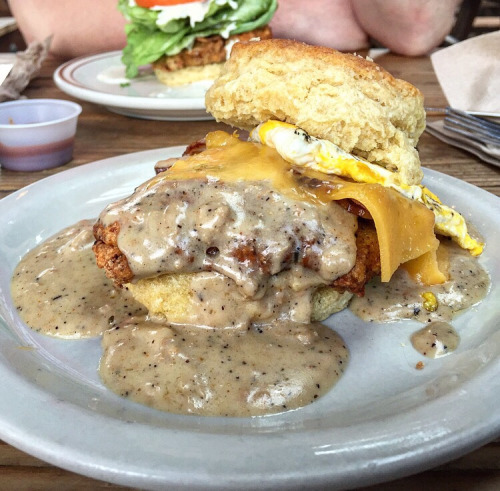
Photo courtesy of tumblr.com
I learned British English in my home country before I came to America. In my English textbook from elementary school, “biscuit” is translated to bing gan (饼干), which technically means cracker in English. That is an issue because biscuit in America is a totally different type of food than a cracker. Once a server asked me, “Would you like to have some crackers?” In my mind, I was thinking biscuits so I was surprised when they arrived.
4. Ketchup v. Tomato Sauce
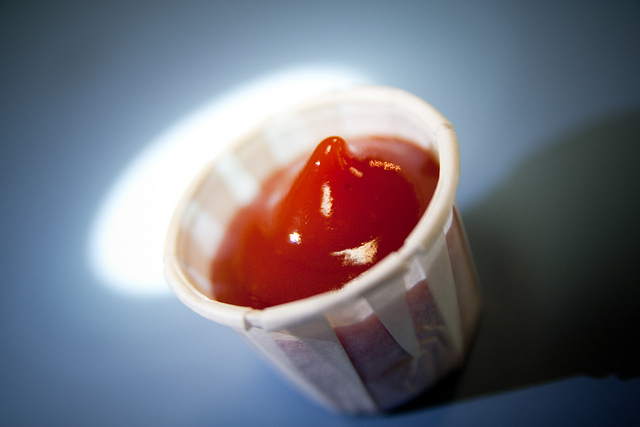
Photo courtesy of Steven Depolo on flickr.com
In Chinese, ketchup is fan qie jiang (番茄酱). The first two symbols, 番茄, mean tomato and the last symbol, 酱 means sauce. Translated to English word-by-word, it means “tomato sauce.” Sounds close, right? Oh no, it’s a big problem. People in American use ketchup for fries, burgers, or other food, while they put tomato sauce on spaghetti and pasta. The thought of ketchup on pasta itself make me cringe.
5. Pasta v. Spaghetti
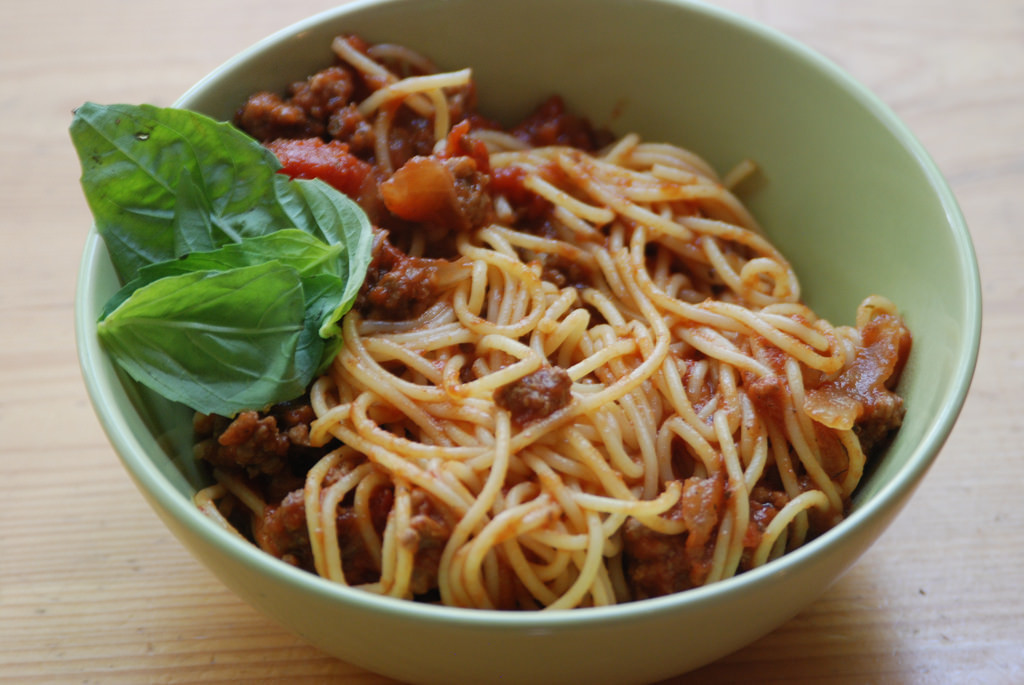
Photo by Judy Holtz
意大利面, or yi da li mian, can mean either pasta or spaghetti. Translated to English word by word, it means “Italian noodles.” This makes for an awkward situation when you order Italian noodles at a restaurant, and the server has no idea what you’re talking about.
6. Fudge v. Soft Candy
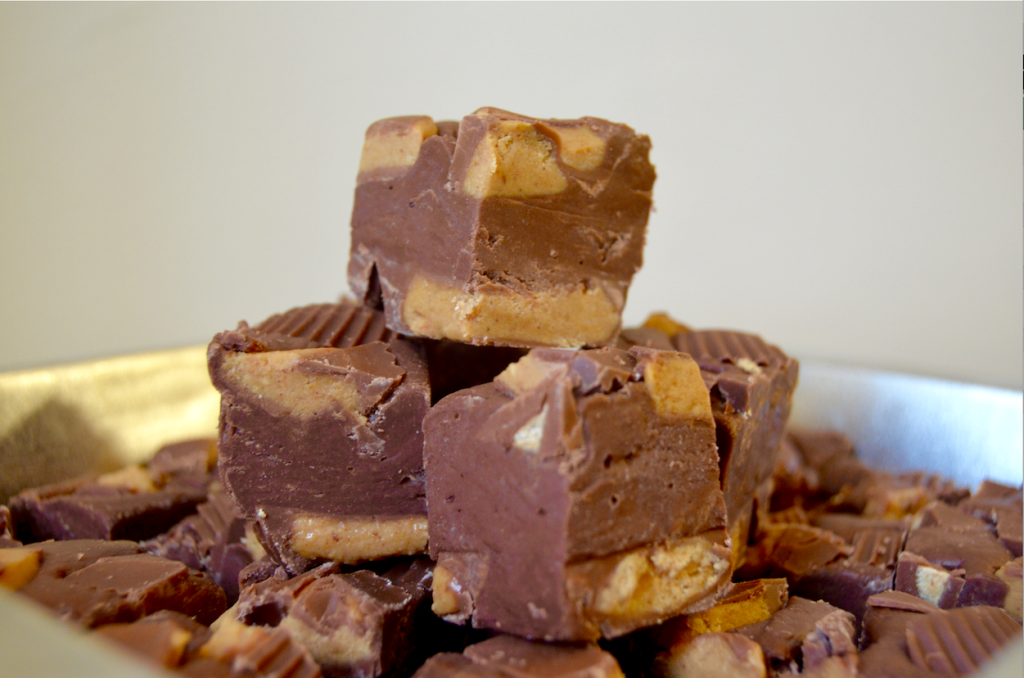
Photo by Meg Josephson
Usually, fudge is ruan tang (软糖) in Chinese. 软 means soft and 糖 means candy or sweet. Translated back to English, ruan tang means “soft candy.” This translation doesn’t sound like fudge at all! Considering fudge is made of sugar, milk fat, and chocolate, this doesn’t make sense at all to Chinese people. What if they want gummy bears or Jelly Beans?
7. Cheese…
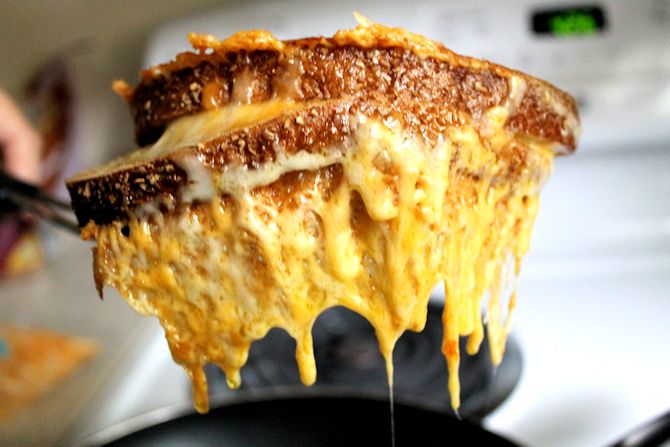
Photo by Kylie Kinder
In Mandarin Chinese, cheese can be said as either zhishi (芝士), or nai lao (奶酪). 芝士 is transliterated while 奶酪 means “milk-butter.” These translations totally make sense. However, in Cantonese (a dialect in Southern China), the translation zhishi (芝士) is pronounced differently than it is in Mandarin. In Cantonese, zhishi (芝士) is translated as “pig poop.” Disgusting!
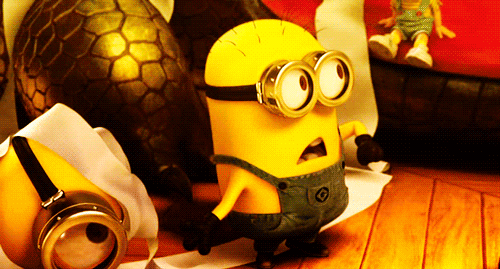
GIF courtesy of tumbr.com
All in all, international students deserve credit for completely adapting to a foreign language, because it’s no fun ending up with a plate of noodles and ketchup.



